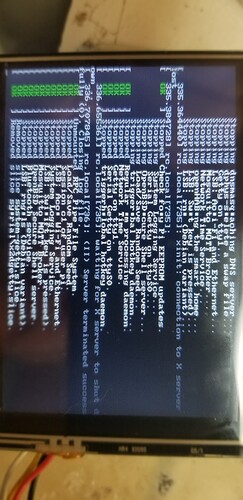At first glance these seem to be unrelated problems, but the last two may both be OpenHAB. And just to confirm, v1.4-dev is the latest release as of right now.
First we have the DHCP issue. This is one I haven’t seen before, so hopefully the logs will tell us something. The Raspberry Pi OS uses dhcpcd (at least up to and including in Debian 11, which is what v1.4-dev is based on). The configuration is in /etc/dhcpcd.conf you can see the status with systemctl status dhcpcd and the logs with systemctl status dhcpcd. The expected log message should include something like this:
Sep 01 20:34:24 raspberrypi dhcpcd[297]: eth0: adding default route via 10.0.2.2
Second we have the temperature sensor issue. If you are able to SSH into the pi, you should be able to do some debugging with i2cdetect. See section 4.3 of the owners manual for details and let us know what you find.
Third, there’s the relays. There are instructions on how to determine if they relay hardware is working in section 4.2 of the owners manual. This will tell us if the problem is that the relays don’t work, or if it’s that OpenHAB isn’t trying to turn on the relays. My bet is on the latter, but we should verify this before getting too far into things.
For the fourth item, let’s focus on the timezone and see if solving that solves everything else. When you use the basic web UI (Basic UI → Settings) to set your timezone and reboot, it should certainly persist. When troubleshooting, it’s worth noting that Java has its own timezone settings that are separate from the O/S. This means if you go the the Paper UI and check Configuration → System to see your timezone, I wouldn’t expect it to be set there. It’s the system timezone that we care about.
After setting the timezone in the Basic UI, /etc/timezone should be gone (it would have been set to “Europe/London” originally). The symbolic link at /etc/localtime should point to your timezone file (e.g. be a symlink to /usr/share/zoneinfo/America/New_York). You can also see the system timezone on the command line with the date command.
If you just want a quick fix for the timezone issue, you can use timedatectl to set it. This should be picked up by OpenHAB, displayed in the OpenHAB UI, and persist across reboots.
Finally, I’d just like to say thank you. I appreciate you taking the time to come report these issues here. It’s hard to fix intermittent problems and since I can’t reproduce any of these issues, I rely on reports like yours to try to figure out what the root cause might be and fix it not only for you but hopefully for everyone in the next release.
Speaking of which, I’d also like to mention that I am working on a v1.5-dev right now and I’m making solid progress, including a fix for some long-standing intermittent errors with installing OpenHAB add-ons. So there is reason to be optimistic. It takes a while to re-build everything from scratch on an raspberry pi, but I’m dedicated to grinding it out. 
